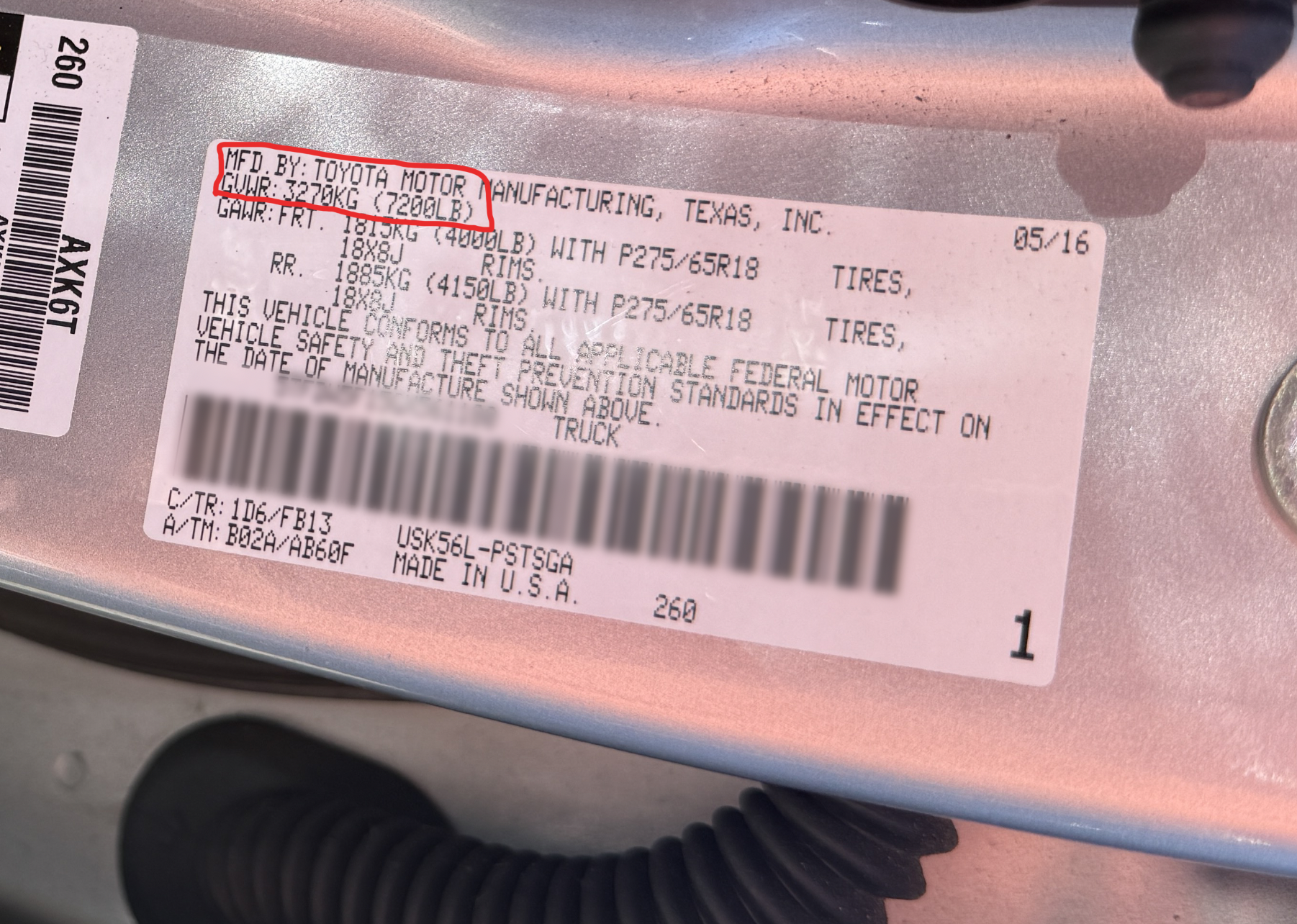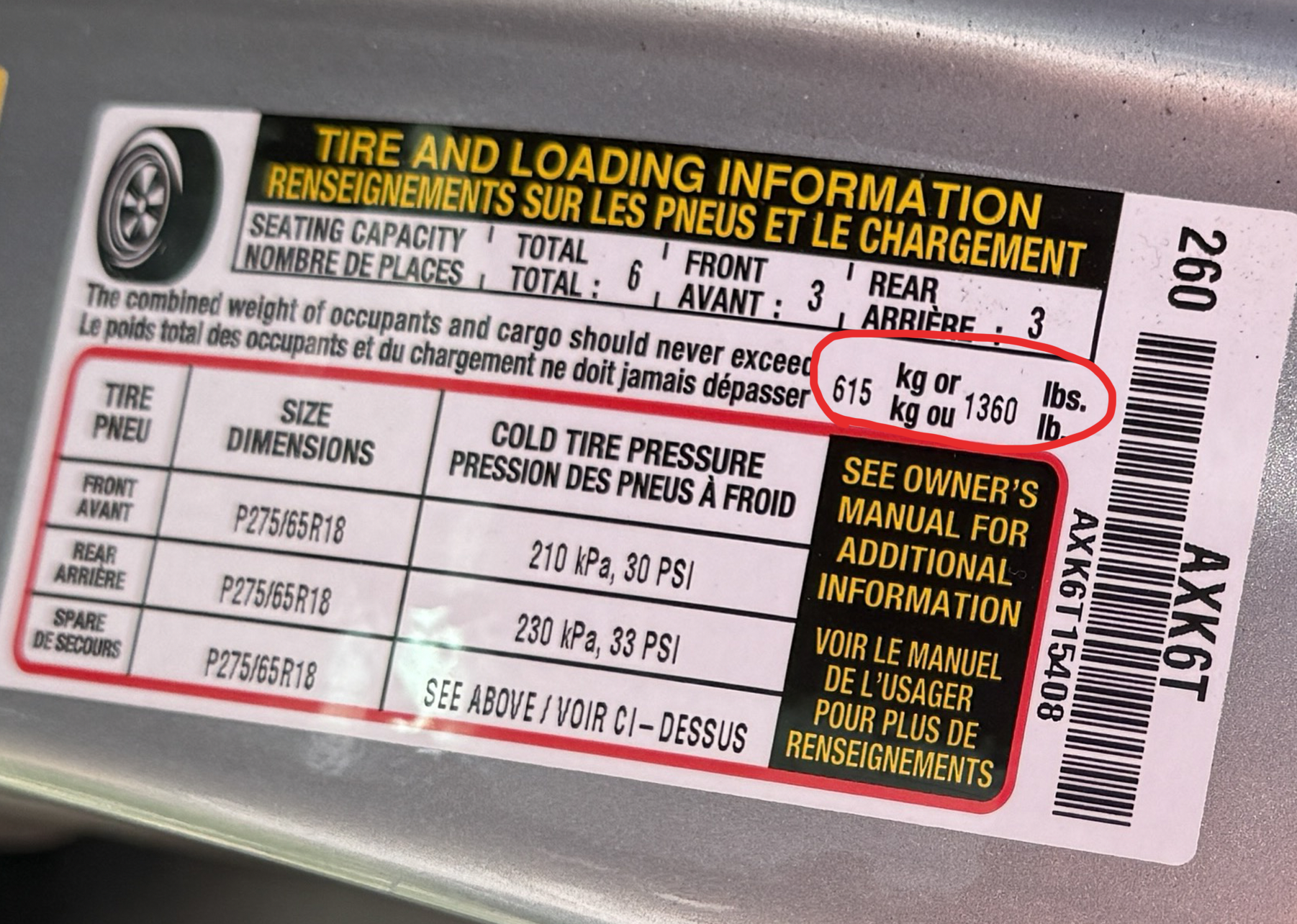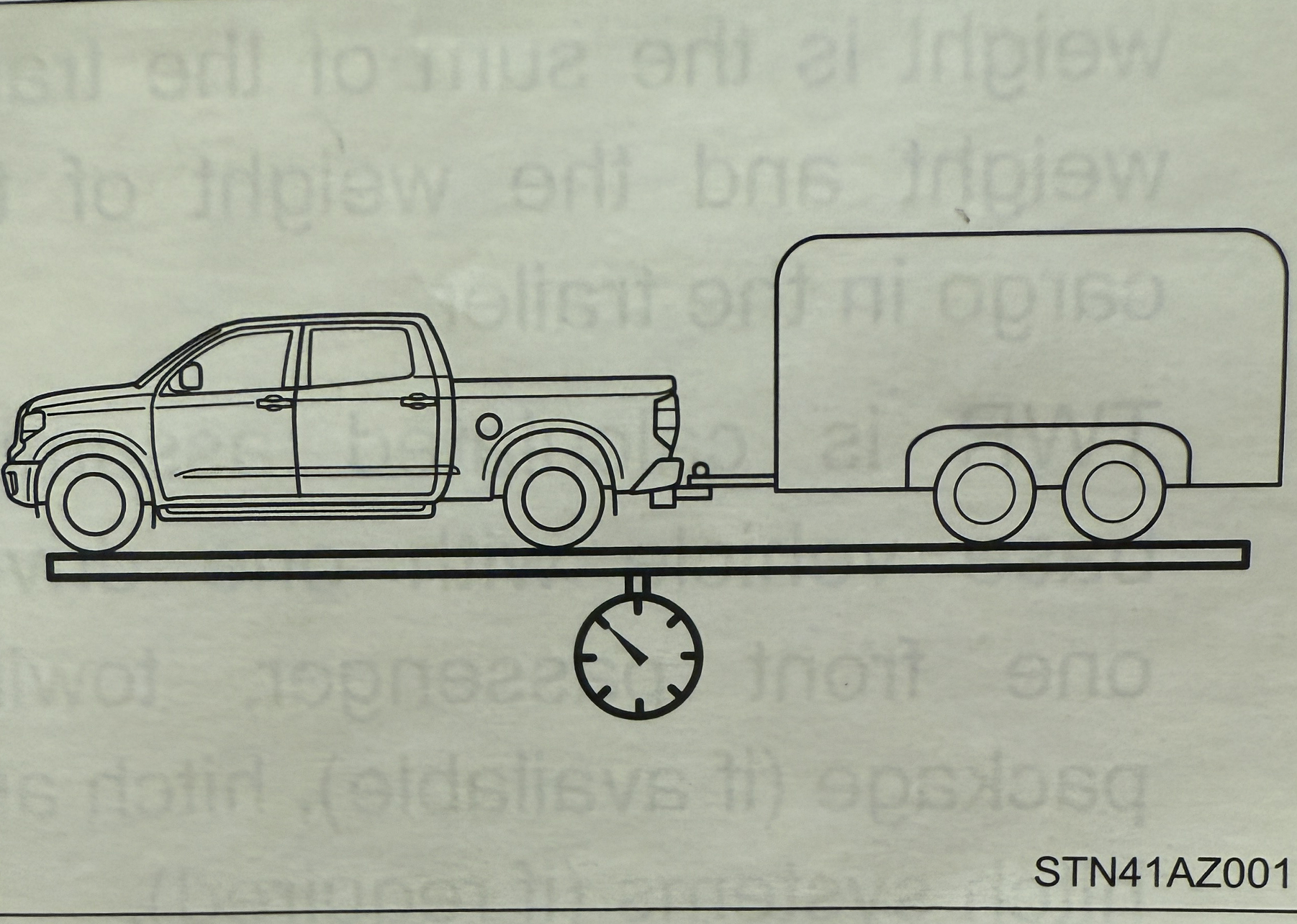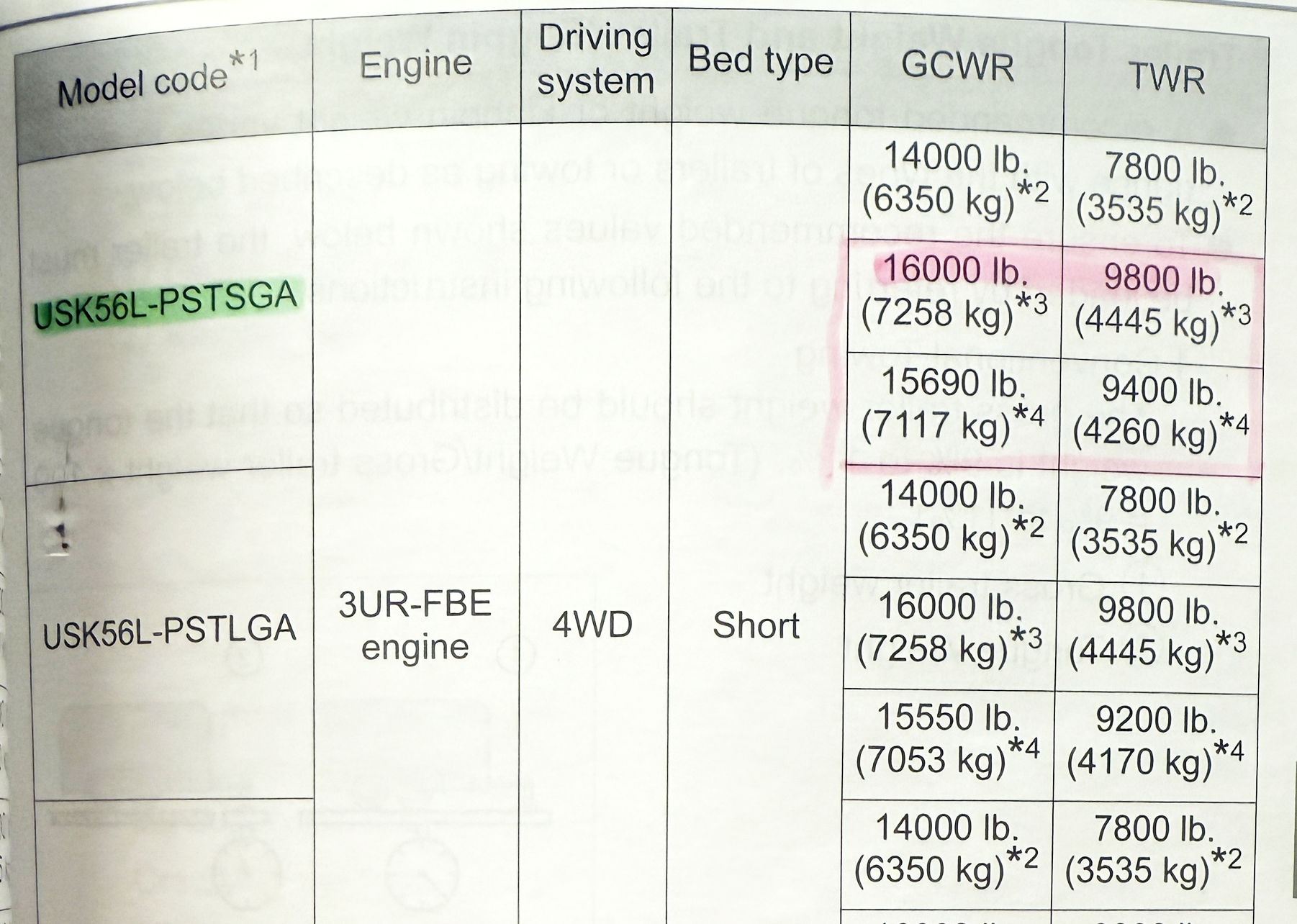Understanding Vehicle Loading a Towing Capacity
When towing a trailer, whether for hauling a boat, RV, or just moving materials, understanding the terminology around weight limits is essential for both safety and efficiency. Three important concepts you’ll encounter are Gross Vehicle Weight Rating (GVWR), Gross Vehicle Weight (GVW), and Gross Combination Weight Rating (GCWR) These terms help determine the limits of both your vehicle and trailer, ensuring you don’t exceed the vehicle’s capabilities and put yourself and others at risk.
Please note: This article provides general information about a vehicle’s maximum towing capacity. However, the actual maximum you can tow depends on specific factors such as trailer GVW, whether the trailer has a braking system, and whether it is a single or tandem axle. For accurate and safe towing limits tailored to your vehicle and trailer setup, always consult your vehicle’s user manual, contact your dealership, or speak with a qualified professional before towing.
What is GVWR?
GVWR, or Gross Vehicle Weight Rating, is the maximum total weight that a vehicle is designed and certified to safely carry, including the vehicle’s curb weight, passengers, cargo, and any additional accessories. This rating is determined by the vehicle manufacturer through rigorous testing and is essential for ensuring the vehicle operates within safe limits. Exceeding the GVWR can lead to mechanical failures, compromised handling, and increased safety risks. The GVWR is typically listed on a label located inside the driver’s door frame or included in the vehicle’s owner manual. For example, this 2016 Toyota Tundra has a GVWR of 7,200 pounds, indicating it should not be loaded beyond this weight to ensure safe and optimal performance. Understanding and adhering to the GVWR helps prevent overloading, extends vehicle lifespan, and ensures compliance with safety regulations. Always verify this rating for your specific vehicle and avoid exceeding it during loading or towing.
Gross Vehicle Weight Rating GVWR

What is GVW (Gross Vehicle Weight)?
GVW refers to the total weight of a vehicle and its load at any given moment. This includes the vehicle’s curb weight (the weight of the vehicle without any cargo or passengers) plus the weight of any passengers, cargo, and any other items inside the vehicle or in our case in the truck bed. GVW is a snapshot of how much weight the vehicle is carrying at a specific moment, NOT the actual rating. It’s like asking someone how much the weigh at any given moment.
So how much can I load into my vehicle and what’s its’ curb weight?
Vehicle manufacturers typically specify the maximum permissible payload – the combined weight limit for occupants and cargo – often found on the driver’s side doorjamb. For instance, this limit is 1360 pounds in our example. This value is crucial for safe operation.
While the curb weight (the vehicle’s weight when fully equipped but empty) isn’t always directly stated, it’s easily calculated using the Gross Vehicle Weight Rating (GVWR). The GVWR is the maximum allowable total weight.
To find the curb weight, subtract the maximum payload from the GVWR. Using our example with a GVWR of 7200 pounds and a payload of 1360 pounds:
Curb weight includes essential operating fluids like oil, coolant, and a full fuel tank. Understanding both payload and curb weight provides a clearer picture of the vehicle’s weight limitations.
Gross Combination Weight Rating (Vehicle and Truck)

How much can my vehicle tow?
When it comes to vehicle towing their are a few things to consider. The first thing to consider is the GCWR or the Gross Combination Weight Rating. This is the maximum allowable combination weight. The gross combination weight is the sum of the total vehicle weight (including occupants, cargo, and any optional equipment installed on the vehicle) and the weight of the trailer being towed (including the cargo in the trailer). View the diagram to get a better understanding of what’s being measured.
Gross Combination Weight Rating (Vehicle and Trailer)

In our case, the GCWR is 16000 lbs. This means that when you are driving down the road, the total combined weight of the vehicle, cargo, occupants, the trailer and its’ cargo shall not exceed 16000 lbs.
But how do you find this information?
Again, located on the inside of the driver door is a sticker that will state the exact model number of your vehicle. These will all look slightly different but here is an example for reference.
Model Number Sticker

After you have you find the model number, you will want to locate your vehicles owner manual and head over to the section that addresses towing and match the model number off the door with the model number listed in the manual. Besides finding your GCWR here, you will also be able to find what your TWR (Trailer Weight Rating) is.
As your can see, the TWR or Trailer Weight Rating (the maximum allowable trailer weight) is 9800-lbs. Keep in mind that if you were to pull a trailer that weighed 9800 pounds in this senario, the vehicle would essentially need to be empty, other than occupants as not to exceed the GCWR of 16000-pounds.
We will discuss how to find out how much trailer weighs and what it’s useful load is in another chapter located here.
Owner's Manual

Conclusion:
In conclusion, understanding weight ratings such as GVWR, GVW, TWR, and GCWR is crucial for safe and efficient trailer towing. These ratings are designed to provide maximum tolerances to prevent overstressing your vehicle and compromising safety. However, it is important to note that these ratings can vary significantly depending on state regulations, specific vehicle configurations, and trailer types. For example, considerations for single axle versus tandem axle trailers, as well as the presence or absence of brakes, can influence safe towing limits and overall compliance with local laws.
Additionally, this article focuses primarily on general weight limits and does not account for the nuances introduced by different trailer setups, brake systems, or multiple axle configurations. When planning a towing load, always consult your vehicle’s specific manual, adhere to posted legal requirements, and consider professional guidance to ensure your setup meets all relevant standards. Prioritizing these factors helps maintain maximum tolerances within safe boundaries and ensures a secure, efficient towing experience tailored to your particular situation.
